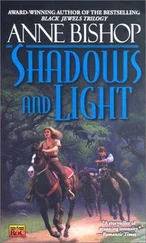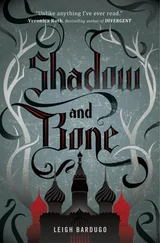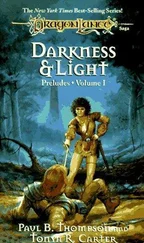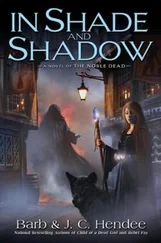Mifflin Gibbs - Shadow and Light
Здесь есть возможность читать онлайн «Mifflin Gibbs - Shadow and Light» — ознакомительный отрывок электронной книги совершенно бесплатно, а после прочтения отрывка купить полную версию. В некоторых случаях можно слушать аудио, скачать через торрент в формате fb2 и присутствует краткое содержание. Жанр: foreign_antique, foreign_prose, на английском языке. Описание произведения, (предисловие) а так же отзывы посетителей доступны на портале библиотеки ЛибКат.
- Название:Shadow and Light
- Автор:
- Жанр:
- Год:неизвестен
- ISBN:нет данных
- Рейтинг книги:4 / 5. Голосов: 1
-
Избранное:Добавить в избранное
- Отзывы:
-
Ваша оценка:
- 80
- 1
- 2
- 3
- 4
- 5
Shadow and Light: краткое содержание, описание и аннотация
Предлагаем к чтению аннотацию, описание, краткое содержание или предисловие (зависит от того, что написал сам автор книги «Shadow and Light»). Если вы не нашли необходимую информацию о книге — напишите в комментариях, мы постараемся отыскать её.
Shadow and Light — читать онлайн ознакомительный отрывок
Ниже представлен текст книги, разбитый по страницам. Система сохранения места последней прочитанной страницы, позволяет с удобством читать онлайн бесплатно книгу «Shadow and Light», без необходимости каждый раз заново искать на чём Вы остановились. Поставьте закладку, и сможете в любой момент перейти на страницу, на которой закончили чтение.
Интервал:
Закладка:
Mifflin Wistar Gibbs
Shadow and Light An Autobiography with Reminiscences of the Last and Present Century
PREFACE
During the late years abroad, while reading the biographies of distinguished men who had been benefactors, the thought occurred that I had had a varied career, though not as fruitful or as deserving of renown as these characters, and differing as to status and aim. Yet the portrayal might be of benefit to those who, eager for advancement, are willing to be laborious students to attain worthy ends.
I have aimed to give an added interest to the narrative by embellishing its pages with portraits of men who have gained distinction in various fields, who need only to be seen to present the career of those now living as worthy models, and the record of the dead, who left the world the better for having lived. To enjoy a life prominent and prolonged is a desire as natural as worthy, and there have been those who sought to extend its duration by nostrums and drinking-waters said to bestow the virtue of "perpetual life." But if "to live in hearts we leave behind is not to die," to be worthy of such memorial we must have done or said something that blessed the living or benefited coming generations. Hence autobiography is the record, for "books are as tombstones made by the living, but destined soon to remind us of the dead."
Trusting that any absence of literary merit will not impair the author's cherished design to "impart a moral," should he fail to "adorn a tale."
Little Rock, Ark., January, 1902.
INTRODUCTION
It is seldom that one man, even if he has lived as long as Judge M. W. Gibbs is able to record his impressions of so many widely separated parts of the earth's surface as Judge Gibbs can, or to recall personal experiences in so many important occurrences.
Born in Philadelphia, and living there when that city – almost on the border line between slavery and freedom – was the scene of some of the most stirring incidents in the abolition agitation, he was able as a free colored youth, going to Maryland to work, to see and judge of the condition of the slaves in that State. Some of the most dramatic operations of the famous "Underground Railroad" came under his personal observation. He enjoyed the rare privilege of being associated in labor for the race with that man of sainted memory, the Hon. Frederick Douglass. He met and heard many of the most notable men and women who labored to secure the freedom of the Negro. As a resident of California in the exciting years which immediately followed the discovery of gold, he watched the development of lawlessness there and its results. A few years later he went to British Columbia to live, when that colony was practically an unknown country. Returning to the United States, he was a witness to the exciting events connected with the years of Reconstruction in Florida, and an active participant in the events of that period in the State of Arkansas. At one time and another he has met many of the men who have been prominent in the direction of the affairs of both the great political parties of the country. In more recent years he has been able to see something of life in Europe, and in his official capacity as United States Consul to Tamatave, Madagascar, adjoining Africa, has resided for some time in that far-off and strange land.
It would be difficult for any man who has had all these experiences not to be entertaining when he tells of them. Judge Gibbs has written an interesting book.
Interspersed with the author's recollections and descriptions are various conclusions, as when he says: "Labor to make yourself as indispensable as possible in all your relations with the dominant race, and color will cut less figure in your upward grade."
"Vice is ever destructive; ignorance ever a victim, and poverty ever defenseless."
"Only as we increase in property will our political barometer rise."
It is significant to find one who has seen so much of the world as Judge Gibbs has, saying, as he does: "With travel somewhat extensive and diversified, and with residence in tropical latitudes of Negro origin, I have a decided conviction, despite the crucial test to which he has been subjected in the past, and the present disadvantages under which he labors, that nowhere is the promise along all the lines of opportunity brighter for the American Negro than here in the land of his nativity."
I bespeak for the book a careful reading by those who are interested in the history of the Negro in America, and in his present and future.
BOOKER T. WASHINGTON.
CHAPTER I
In the old family Bible I see it recorded that I was born April 17, 1823, in Philadelphia, Pa., the son of Jonathan C. Gibbs and Maria, his wife. My father was a minister in the Wesleyan Methodist Church, my mother a "hard-shell" Baptist. But no difference of religious views interrupted the even tenor of their domestic life. At seven years of age I was sent to what was known as the Free School, those schools at that time invaluable for colored youth, had not graded studies, systematized, and with such accessories for a fruitful development of the youthful mind as now exist. The teacher of the school, Mr. Kennedy, was an Irishman by birth, and herculean in proportions; erudite and severely positive in enunciation. The motto "Spare the rod and spoil the child" had no place in his curriculum. Alike with the tutors of the deaf and the blind, he was earnest in the belief that learning could be impressively imparted through the sense of feeling. That his manner and means were impressive you may well believe, when I say that I yet have a vivid recollection of a bucket with an inch or two of water in it near his desk. In it stood an assortment of rattan rods, their size when selected for use ranging in the ratio of the enormity, of the offence or the age of the offender.
Among the many sterling traits of character possessed by Mr. Kennedy was economy; the frequent use of the rods as he raised himself on tiptoe to make his protest the more emphatic – split and frizzled them – the immersion of the tips in water would prevent this, and add to the severity of the castigation, while diminishing the expense. A policy wiser and less drastic has taken the place of corporal punishment in schools. But Mr. Kennedy was competent, faithful and impartial. I was not destined to remain long at school. At eight years of age two events occurred which gave direction to my after life. On a Sunday in April, 1831, my father desired that the family attend his church; we did so and heard him preach, taking as his text the 16th verse of Chapter 37 in Genesis: "I seek my brethren; tell me, I pray thee, where they feed their flocks."
On the following Sunday he lay before the pulpit from whence he had preached, cold in death, leaving my mother, who had poor health, with four small children, and little laid by "for a rainy day." Unable to remain long at school, I was "put out" to hold and drive a doctor's horse at three dollars a month, and was engaged in similar employment until I reached sixteen years of age. Of the loving devotion and self-sacrifice of an invalid mother I have not words to express, but certain it is, that should it ever appear that I have done anything to revere, or aught to emulate, it should be laid on the altar of her Christian character, her ardent love of liberty and intense aspiration for the upbuilding of the race. For her voice and example was an educator along all the lines of racial progress.
Needing our assistance in her enfeebled condition, she nevertheless insisted that my brother and myself should learn the carpenter trade. At this period in the career of youth, the financial condition of whose parents or sponsors is unequal to their further pursuit of scholastic studies, it is not without an anxious solicitude they depart from the parental roof. For the correct example and prudent advice may not be invulnerable to the temptation for illicit pleasures or ruinous conduct. Happy will he be who listens to the admonitions of age. Unfortunately by the action of response, sad in its humor, too often is: I like the advice but prefer the experience.
Читать дальшеИнтервал:
Закладка:
Похожие книги на «Shadow and Light»
Представляем Вашему вниманию похожие книги на «Shadow and Light» списком для выбора. Мы отобрали схожую по названию и смыслу литературу в надежде предоставить читателям больше вариантов отыскать новые, интересные, ещё непрочитанные произведения.
Обсуждение, отзывы о книге «Shadow and Light» и просто собственные мнения читателей. Оставьте ваши комментарии, напишите, что Вы думаете о произведении, его смысле или главных героях. Укажите что конкретно понравилось, а что нет, и почему Вы так считаете.












